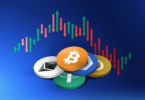Investing money is a crucial decision, and choosing the right financial instrument can significantly impact your returns. When it comes to derivatives markets, future and options trading are two of the most popular choices. Both offer exciting opportunities but also come with their own risks and complexities. Whether you’re a seasoned investor or someone just starting out, understanding the difference between these two instruments and assessing which is more profitable for your specific strategy is essential. In this article, we’ll dive deep into the world of future vs option trading, examine their profitability, risks, and much more.
What is Future Trading?
In simple terms, future trading involves a contractual agreement to buy or sell a particular asset (such as stocks, commodities, or currencies) at a predetermined price and future date. The contract obligates the buyer to purchase, and the seller to sell, the asset under the agreed-upon conditions. Futures contracts are often used for hedging risks or speculating on price movements. Large-scale investors and corporations favor futures for their ability to lock in prices and manage future uncertainties.
With futures, traders don’t necessarily need to own the underlying asset, as they can speculate purely on its future price movement. However, they are still obligated to buy or sell the asset if the contract reaches its expiration date.
Understanding Option Trading
Option trading gives the investor the right, but not the obligation, to buy or sell an underlying asset at a set price before a specific expiration date. This flexibility makes options different from futures, where the obligation to execute the trade is binding. There are two types of options: Call Options (the right to buy) and Put Options (the right to sell). Traders use options to either hedge their existing investments or speculate on price changes in the market.
A major advantage of options is the limited downside risk, as the maximum loss is usually the premium paid for the option contract. This limited risk profile attracts many traders to options, especially those looking to capitalize on short-term market movements without committing fully to the asset.
Key Differences Between Future vs Option Trading
While both futures and options are derivative instruments, they have several key differences that significantly affect profitability and risk. Understanding these differences can help investors decide which strategy might be more lucrative for them. Let’s explore these key points:
- Obligation vs Right: In futures, both parties are obligated to execute the contract at the expiration date, whereas in options, the investor has the right but not the obligation to act.
- Leverage: Futures typically offer higher leverage, meaning that traders can control larger positions with relatively less capital. Options, on the other hand, require lower upfront capital but offer varying leverage depending on the strike price and time to expiration.
- Risk: Futures carry unlimited risk, especially in volatile markets. Options, however, limit the maximum loss to the premium paid for the contract, offering more risk control.
- Profit Potential: Futures have potentially unlimited profit potential, depending on the direction of the asset’s price movement. Options also offer high profit potential, but only if the asset price moves significantly in the desired direction before the expiration date.
- Flexibility: Options offer more flexibility because the buyer can choose not to exercise the option if it’s not favorable. Futures don’t offer such flexibility.
Which is More Profitable: Future vs Option Trading?
Now that we have a good understanding of the mechanics of future vs option trading, the big question remains: which is more profitable? The answer depends largely on the individual’s trading style, risk tolerance, and market conditions. Let’s break this down further.
- Profitability in Futures: Futures trading can be highly profitable for those who are confident in predicting market trends. Because of its high leverage, small market movements can result in substantial profits. However, the same leverage can magnify losses. Traders who enjoy fast-paced environments and have a solid understanding of technical analysis often find futures more profitable.
- Profitability in Options: While options offer limited risk, they can also generate significant profits if the price movement aligns with the trader’s expectation. For example, if a trader buys a call option and the stock price skyrockets, they can gain enormous returns with only a small initial investment. Additionally, options strategies like spreads can be structured to benefit in various market conditions, offering traders more versatility.
Ultimately, neither futures nor options can be universally labeled as “more profitable.” Profitability is directly tied to how well a trader can predict price movements, manage risks, and employ strategic approaches.
The Role of Leverage in Profitability
One of the primary reasons traders are drawn to futures and options is the leverage they offer. Leverage allows you to control a larger position with a relatively smaller amount of money. In futures trading, the leverage can be much higher than in options, allowing for higher profit potential — but with higher risk. Conversely, options provide leverage as well, but with built-in risk mitigation because the maximum loss is capped at the premium paid for the contract.
For instance, a futures contract might allow a trader to control $100,000 worth of a commodity with only $10,000 in capital, offering a 10:1 leverage ratio. This can significantly amplify gains (or losses). In options, you might pay $500 for the right to buy that same commodity at a certain price, providing exposure to large profits with a much lower initial investment.
Risk Management in Future vs Option Trading
When it comes to managing risks, options trading generally provides more safety nets than futures. In a volatile market, futures traders are at the mercy of market swings, and their positions can quickly turn negative. Without proper stop-loss strategies or hedging, futures trading can lead to significant losses that surpass the initial investment.
On the other hand, options offer a built-in risk control mechanism — the maximum loss is limited to the premium paid. This makes options particularly appealing to traders who want exposure to high-reward scenarios while keeping their downside risk in check. Experienced investors often use complex options strategies, like spreads and straddles, to further manage risk while enhancing profit potential.
Which Trading Style Suits You?
When determining whether futures or options are more profitable for your investment style, consider your approach to the market:
- Are you a high-risk, high-reward trader? If so, futures might be more appealing, as they offer higher leverage and potential returns, but also expose you to higher risks.
- Do you prefer a more controlled risk environment? In that case, options might be the better choice, especially if you are risk-averse or new to trading. With options, you can structure trades that limit your downside while maintaining the opportunity for upside gains.
Future vs Option Trading in Different Markets
Different asset markets might also favor one form of trading over another:
- Commodities: Futures contracts are highly popular in commodities markets (oil, gold, natural gas), where large companies hedge against price fluctuations. However, options also offer exposure to these markets with less risk.
- Equities: Options are frequently used in stock markets, offering traders the ability to bet on price movements without buying the underlying shares. Futures contracts are also available for equity indices.
- Currencies and Forex: Futures contracts are standard in Forex trading due to their liquidity and leverage, but options are also used to hedge or speculate on currency movements.
Conclusion
In the debate of future vs option trading, which is more profitable? It ultimately depends on your personal trading style, risk tolerance, and understanding of the markets. Futures provide higher leverage and, with that, the potential for higher profits — but they also carry greater risk. Options, on the other hand, offer flexibility, risk control, and the ability to execute more sophisticated strategies. Whether you choose futures or options, both instruments offer exciting opportunities to enhance your investing money strategies. The key is to educate yourself on the risks and rewards, start with a solid strategy, and continually refine your approach as you gain more experience in the markets.
Frequently Asked Questions
What is the main difference between futures and options trading?
The main difference lies in obligation. Futures require both parties to fulfill the contract upon expiration, whereas options give the buyer the right, but not the obligation, to execute the trade.
Which is riskier, futures or options?
Futures are generally riskier because they carry unlimited risk, whereas options have limited downside risk, capped at the premium paid for the contract.
Can I make more money trading futures or options?
Both offer significant profit potential, but futures tend to offer higher rewards due to their leverage. However, options can be more profitable for traders who want to limit their risk while still having access to high returns.
Is futures trading suitable for beginners?
Futures trading is typically not recommended for beginners due to the high leverage and potential for substantial losses. Options trading, with its limited risk, is often considered more beginner-friendly.
Are options better for long-term investing?
Options can be used for both short-term speculation and long-term investing, particularly through strategies like covered calls and LEAPS (Long-Term Equity Anticipation Securities).
How do I decide between futures and options?
Your decision should depend on your risk tolerance, market knowledge, and investment goals. If you are comfortable with higher risk for potentially higher returns, futures may suit you. If you prefer controlled risk and more flexible strategies, options might be a better fit.








Leave a Comment